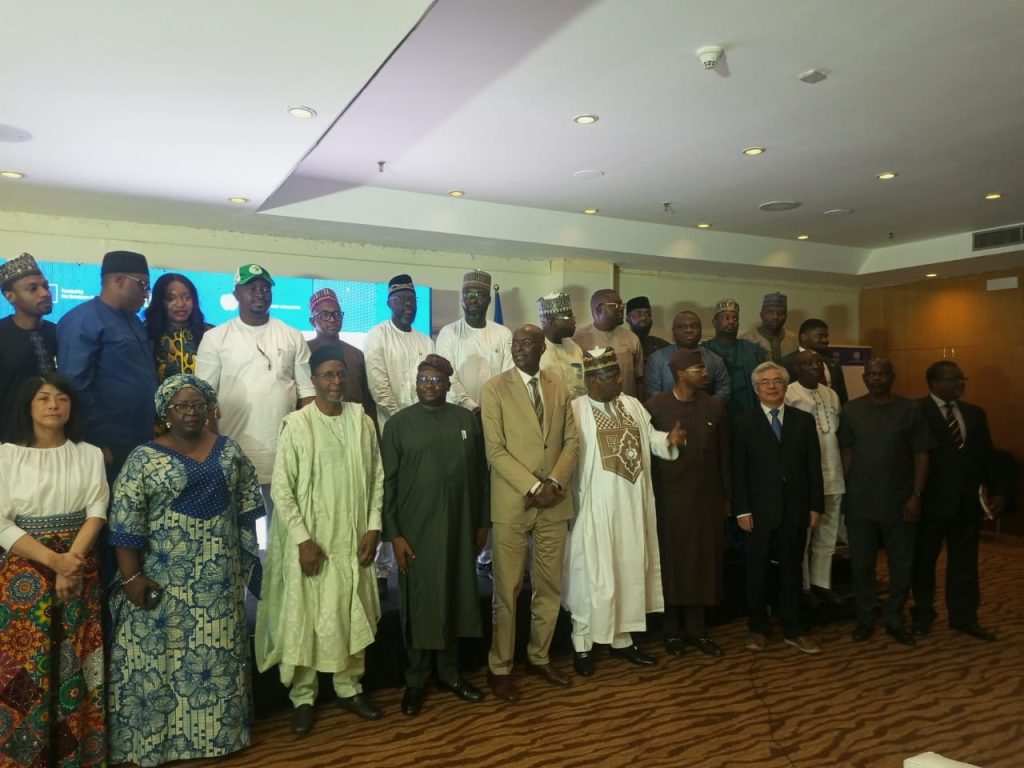
The European Union (EU) has introduced two projects worth €9 million in Nigeria’s energy sector.
The projects aim to assist the federal government in providing clean, affordable, and sustainable energy for all Nigerians.
One of the projects is called Small Hydropower Development for Agro-industry Use in Nigeria (SHIP-DAIN). It has a budget of €5 million and will span three years.
The second project, Advancing Nigeria’s Green and Just Transition to Net Zero through Circular Economy Practices, also has a three-year timeline and a budget of €4 million.
Both projects will be implemented by the United Nations Industrial Development Organisation (UNIDO). They are part of the EU’s global gateway strategy, which aims to enhance connectivity, foster economic growth, and promote sustainability through collaboration.
Samuela Isopi, the EU Ambassador to Nigeria and ECOWAS, explained, at the lunch event in Abuja, that the SHIP-DAIN project seeks to increase small hydropower capacity in Nigeria’s energy mix.
According to Isopi, its goal is to promote productivity along the agricultural value chain and other businesses, as well as enhance livelihood and food security.
”This project will provide tailored training and knowledge management to major actors in the private, government, and finance sectors, as well as micro, small, and medium enterprises. The SHIP-DAIN project will also support the establishment of a small hydropower infrastructure with a cumulative capacity of 2MW for agro-industrial use across the country.
Furthermore, it will contribute to the development of policies and an industrial framework for renewable energy, streamlining policies and incentive schemes to encourage greater utilization of small hydropower. The project will focus on ensuring sustainability through awareness development, visibility promotion, the implementation of gender strategies, project management, and monitoring.”
Isopi maintained that the Nigeria Green and Just Transition to Net Zero through Circular Economy Practices project aims to improve the management of used off-grid energy equipment for pollution and greenhouse emissions mitigation.
”It will strengthen the policy and regulatory framework for promoting circular economy principles and practices, as well as enhance the management of used energy equipment. The project will also support the capacity-building of relevant institutions at the federal and state levels. Additionally, it will foster the development of business models that support SME-led circular economy practices, such as the reuse and recycling of used equipment in the energy sector. Ensuring sustainability will involve raising awareness, promoting visibility, implementing gender strategies, and managing projects effectively.”
Mohammed Fall, UNIDO’s Regional Office Director, stated that the goal of the projects was to support Nigeria’s efforts to decarbonize its economy and achieve a net zero target by 2060.
Adebayo Adelabu, the Minister of Power, expressed confidence that the projects would not only improve the management of used off-grid energy equipment and plastic waste but also increase agricultural productivity and improve livelihoods.
Balarabe Abbas, the Minister of Environment, disclosed that a comprehensive circular economy roadmap has been developed and is set to be launched next month.
RN